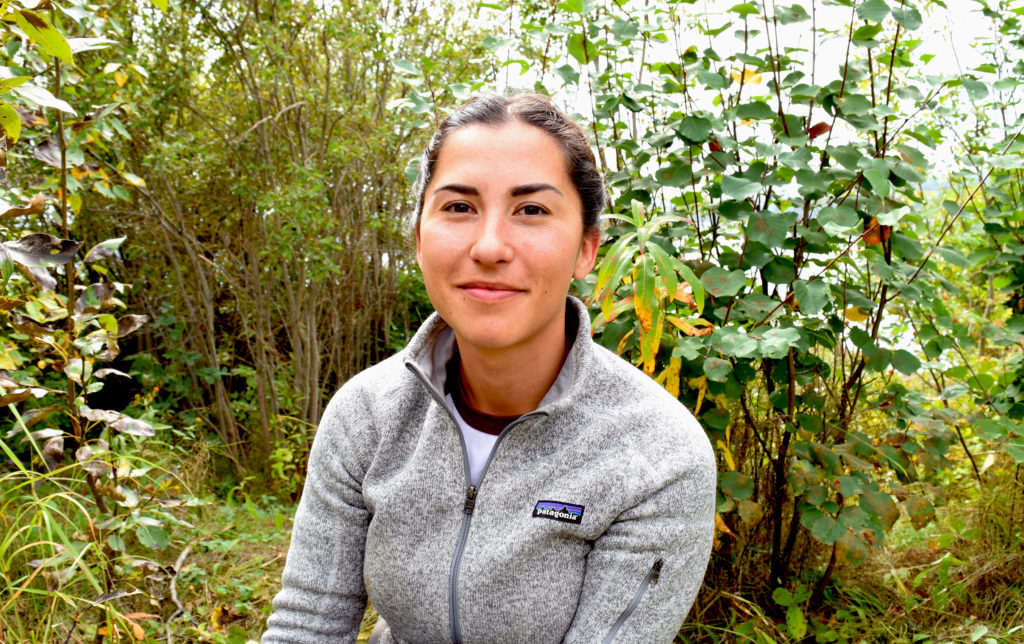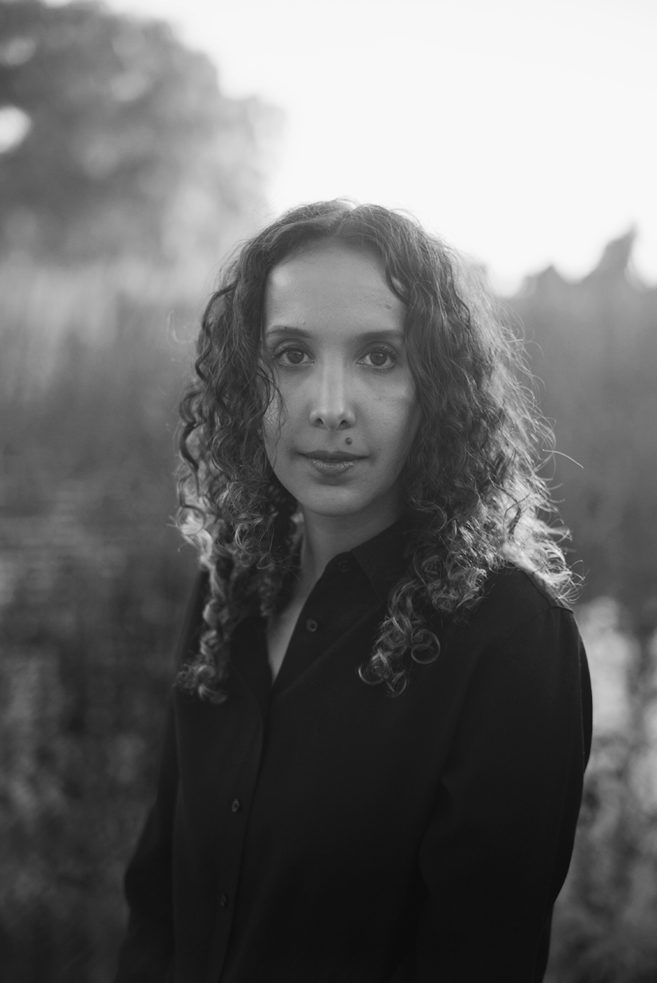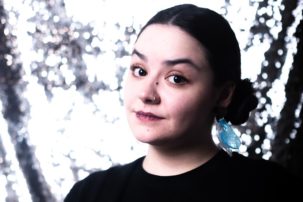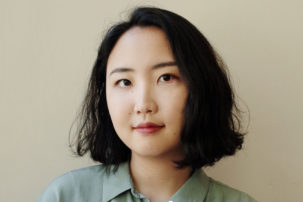Camille Georgeson-Usher of Toronto is the first-place winner of the 2018 Canadian Art Writing Prize. Georgeson-Usher will be commissioned to write a feature story for a future issue of Canadian Art and will receive a $3,000 award.
The two runners-up for this year’s prize are Phanuel Antwi of Vancouver and Corinna Wollf of Saskatoon. Each will receive recognition in the magazine and a $1,000 award.
The Canadian Art Writing Prize, now in its ninth year, is an annual juried prize designed to encourage new writers on contemporary art. For eligibility, writers must be 18 years of age or older and cannot have published more than three pieces in national or international magazines. This year, an international jury of writers and art professionals reviewed the submissions.
The 2018 jury consisted of Vancouver-based writer and curator, Bopha Chhay; New York–based writer and editor Haley Mlotek; and Montreal-based novelist, short-story writer and essayist Heather O’Neill.
To be considered, applicants submitted an unpublished writing sample on an art-related subject. Georgeson-Usher’s submission, “Convergences as Rhythmic Disturbances—Indigenous Connections through Urban Navigation,” uses the concept of rhythmic spatialization to explore the effects of urban landscapes on Indigenous bodies, using personal prose and theory to connect rhythms, the cityscape and art. Corinna Wollf’s essay, “A Circle in a Sea of Squares,” interprets “UNCEDED: Voices of the Land,” Canada’s official entry into the 2018 Venice Biennale of Architecture, complicating different historical narratives, Indigeneity and colonization within the context of the biennale. Phanuel Antwi’s essay, “A Felt Sense of Whether,” interprets artist Lesley Loksi Chan’s 2017 exhibition, “ACCORDING TO WHETHER,” using Chan’s textile practice to connect to a more textured nature of movement—political movement, gender and #MeToo—while speaking within and against the language of aesthetic representation.
“In an accessible and lyrical manner, fusing memoir, poetry and academic text, [Georgeson-Usher] brings alive the sounds of her rural childhood and those of the streets of Montreal where she lived for many years.”
The jurors supplied these comments on the winner and runners-up:
“What makes Camille Georgeson-Usher’s piece so incredible is that its structure and language mirror the phenomena she is describing. In an accessible and lyrical manner, fusing memoir, poetry and academic text, she brings alive the sounds of her rural childhood and those of the streets of Montreal where she lived for many years. She deconstructs how Indigenous voices and artworks disrupt and enhance the rhythms of the city, converging to form a new musical experience to urban life. She is interested in a navigational art of experience, and by interpreting life and love and pain as sound, Georgeson-Usher allows us to experience a startling and raw and vulnerable rhythm to the landscape around us, causing us to acknowledge the different voices of the diverse choir that compose it.” — Heather O’Neill
“In Phanuel Antwi’s text on Lesley Loksi Chan’s body of work ‘ACCORDING TO WHETHER,’ he mentions that ‘complexities rest in bodies.’ Discussing the ways that Chan’s material practice speaks to wider social implications, Antwi’s writing requires of the reader that we acknowledge and reckon with the complexities that lie within our own bodies, and how we carry this into the world [in which] we live, work and make art. Drawing on philosophy, art history and theory, Antwi convincingly complicates and argues for an engagement of difference in contemporary culture. Antwi positions artistic production as a practice that is not only materially expansive, but one that is intimately and deeply committed to and part of a much wider community.” — Bopha Chhay
“Corinna Wolff’s essay, ‘A Circle in a Sea of Squares,’ distinguished itself on my very first read. Wolff displayed a deft balance of the emotional and the political, two crucial elements in a critical examination of cultural discourse and artistic practices. Her evocative descriptions and elegant use of the first person created a languid flow throughout the story, and I found the clarity of her insight to be well-matched with the complexity of her subject matter. I look forward to seeing more of her writing in an upcoming issue of Canadian Art.” — Haley Mlotek
Camille Georgeson-Usher is a Skwxwú7mesh/Hul’q’umi’num/Sahtu Dene/Scottish scholar, street artist and writer from Galiano Island, BC, of the Pune’laxutth’ (Penelakut) Nation. She completed her MA in Art History at Concordia University, where she worked to show the impact the performing arts have in building confidence and leadership among Indigenous youth by learning to talk/embody discussions about safer sexual practices. She is currently a PhD student in the Cultural Studies department at Queen’s University and has been awarded the Joseph-Armand Bombardier Canadian Graduate Scholarship Doctoral award for her research-creation work around urban Indigenous experiences within Indigenous arts collectives and other groups activating public spaces through gestures both little and big. Her artistic and curatorial practices are predominantly looking through acts of deep, loving convergences with colleague Asinnajaq. Together they curated the exhibition titled “this world; here,” which is a glimpse into how we connect our universes through sound, smell and touch.
Phanuel Antwi is a son, a lucky brother of two handsome, loving sisters, Agnes and Clara, and a blessed uncle to a beautiful boy, Ezekiel, and niece, Chelsea. In addition, he works with dance, is a poet, activist, aesthete, as well as an Assistant Professor in the Department of English at University of British Columbia. He has been politically active in organizing around a range of issues, including anti-immigration laws and practices, anti-colonialism and anti-capitalism, sex workers’ rights, labour rights within the university sphere and leadership opportunities for marginalized youth. He spends loads of time exploring questions of desire, the poetics of identity and the intimacies of everyday living.
Corinna Wollf is a professional artist, pedestrian, art wanderer and space maker who has lived a life of displacement and detachment from her ancestral lands and communities. Born in Edmonton, moving often during her childhood and residing in the Saskatoon inner city during her adolescent years and most of her adult life, Corinna relocated to Italy after completing her MFA at the University of Saskatchewan in 2016, where she lives and creates. Recipient of a Joseph-Armand Bombardier Canada Masters Scholarship, Corinna’s graduate work focused on Métis aesthetics in contemporary art and her MFA thesis exhibition, “Water Over the Bridge,” combined large format drawing, printmaking, installation and beading. Her artwork can be seen on the cover of The Break by Katherena Vermette, and she is represented by the Darrell Bell Gallery in Saskatoon. Corinna’s work is in numerous public and private collections. Of Métis and Mennonite decent, Wollf uses her current work to explores identity, culture and place using beads, natural materials and words.
For more information on the Canadian Art Writing Prize and some of its past winners, visit canadianart.ca/writingprize.









